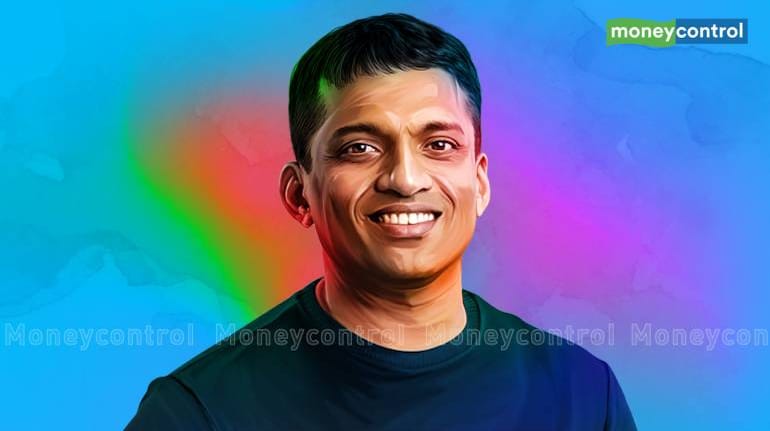



With edtech firm Byju’s scoring the coveted FIFA World Cup 2022 sponsorship, the Internet - at least in some parts of India - was abuzz: There was talk of how Byju's might be the first Indian company to sponsor the football World Cup. There were memes and jokes, too, of course.
When the news broke, Devaiah Bopanna, a writer and founding team member - SuperTeamDAO, quipped: “For a second I thought Byju's acquired FIFA World Cup.”
But later some fact-checkers also chimed in.
“First Indian company to sponsor a FIFA World Cup was Satyam. They were one of the four main sponsors (along with MCD, etc.) for the 2010 and 2014 event. I hope the similarities stop right there. Just saying,” wrote a user on LinkedIn.
To be sure, Satyam Computer Services did sign up as sponsor and official information technology (IT) services provider for the two editions of the FIFA World Cup in 2010 and 2014.
Satyam Computers, a highly successful firm in the '90s, collapsed after its founder Ramalinga Raju confessed in January 2009 that he had been cooking the books for years.
Fast forward to 2022. Byju’s, which recently raised $800 million in fresh funding as part of a pre-IPO round, taking the company's valuation to $22 billion, is all set to make a mark on international shore leveraging what is arguably the most popular global football event.
Byju's is not a stranger in sports partnerships. The most prominent ones include sponsorship with the International Cricket Council (ICC) and title sponsorship of Kerala Blasters football club.
Through the FIFA partnership, Byju's will leverage its rights to the FIFA World Cup 2022 marks, emblem and assets, and run promotions to connect with passionate football fans around the world. It will also create content with educational messages as part of a multifaceted activation plan.
International push
The FIFA World Cup Qatar 2022 is scheduled from 21 November to 18 December 2022. The event is expected to give the company a global push as it aims to scale operations in international markets such as the US, UK, Brazil, Indonesia and Mexico, among others - all top football/soccer consuming markets. The quadrennial tournament is one of the biggest events in the world.
FIFA World Cup 2018 which took place in Russia, for instance, had a viewership of 3.6 billion people across TV, or on out-of-home (OOH) and digital platforms, as per a FIFA audit.
“FIFA World Cup is the most viewed sports and entertainment property in the world. Nothing comes close to it. Byju’s will get a global platform and visibility through this deal. From what I understand Byju’s would have paid at least $30-40 million for this deal. This is an expensive price tag but with Byju’s looking beyond the Indian market and with each edition of WC becoming popular especially in big markets such as US or Latin America which are also critical markets for Byju’s this seems like a good move,” says a senior sports management executive on the condition of anonymity.
Byju’s has been on an acquisition spree having acquired Great Learning and US-based Epic to diversify its offerings in the growing ed-tech space. The ed-tech platform has been trying to make deeper inroads into the US market, and Latin American region, as part of its international expansion roadmap.
In a statement, Byju Raveendran, Byju’s founder and CEO, said: “It is a matter of pride for us to represent India on such a prestigious global stage and champion the integration of education and sport. Within a decade of its launch, the company has expanded to cater to a large student community globally – from K-12 and competitive exam preparation to early learning and coding to professional upskilling courses – with diverse offerings from Osmo, Tynker, Epic, Great Learning, Aakash, and Toppr.”
Luring investors
Sandeep Goyal, managing director, Rediffusion, tells Storyboard18 that when a company invests in a global sports event like FIFA World Cup, the message being given to the investors is that the company is playing for the big stakes.
“I believe sometimes a lot of these sponsorship deals are not just for consumers but also for investors. Being a FIFA sponsor increases a company’s global stature.”
Goyal points to TCS, for example. “Ever since a B2B company like TCS started backing international marathons it has gained a lot in terms of international visibility and credibility. In this case also, I feel the intention is more from gaining international credibility as a financial brand than an educational brand,” he adds.
With corporate headquarters in Bengaluru, India, and offices in 21 countries, Byju’s products are present in over 120 countries. The company claims to have served 3.4 million students from underserved communities and aims to reach 10 million students in India by 2025.
Despite our undying devotion to cricket, India is also a football-loving nation, with passion and viewership of the sport spiking significantly every four years. It's also steadily fuelled by annual tournaments like the English Premier League, La Liga and UEFA Champions League. For brand Byju’s the FIFA World Cup 2022 in Qatar could be a game-changer, at home and abroad, if all the pieces fall into place.
Discover the latest Business News, Sensex, and Nifty updates. Obtain Personal Finance insights, tax queries, and expert opinions on Moneycontrol or download the Moneycontrol App to stay updated!
Find the best of Al News in one place, specially curated for you every weekend.
Stay on top of the latest tech trends and biggest startup news.